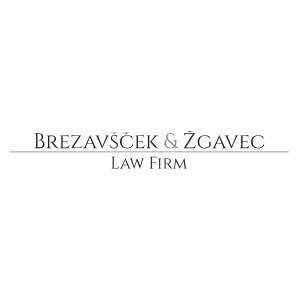Best Water Law Lawyers in Slovenia
Share your needs with us, get contacted by law firms.
Free. Takes 2 min.
Or refine your search by selecting a city:
List of the best lawyers in Slovenia
About Water Law in Slovenia
Water Law in Slovenia governs the ownership, management, use, and protection of water resources within the country. The legislation is primarily based on the Water Act (Zakon o vodah - ZV-1), which aligns with European Union directives, particularly the Water Framework Directive. The law seeks to ensure sustainable water use, prevent pollution, safeguard public health, and protect aquatic and related ecosystems. It covers both surface and groundwater resources, addressing their use for drinking, agriculture, energy production, industry, and recreation.
Why You May Need a Lawyer
There are several situations where legal advice in Water Law is essential. These include:
- Acquiring permits for water abstraction, use, or discharge
- Resolving disputes over water rights or access to public and private water bodies
- Addressing compliance issues in construction projects near rivers, lakes, or wetlands
- Dealing with regulatory violations related to pollution, unauthorized water usage, or land development
- Navigating cross-border water management or agreements involving neighboring countries
- Negotiating compensation for damages caused by flooding or water contamination
- Ensuring representation in administrative or judicial proceedings relating to water legislation
Local Laws Overview
Key aspects of Water Law in Slovenia include:
- Water as Public Property: Most water bodies in Slovenia are public property, with their use and management regulated by state authorities.
- Permit System: Activities such as water abstraction, discharges, and construction on or near watercourses require specific permits.
- Water Use Prioritization: Usage is regulated to prioritize drinking water supply, environmental protection, and sustainable development.
- Pollution Control: Strict rules exist to control the discharge of substances into water bodies, protect water quality, and impose penalties for violations.
- Flood Protection: There are specific obligations for managing flood risks, especially in flood-prone areas.
- Public Participation: The public has the right to participate in decision-making regarding water management plans and projects.
- International Obligations: Slovenia is part of several international agreements for water management, particularly for cross-border rivers.
Frequently Asked Questions
Who owns water resources in Slovenia?
Most water resources in Slovenia are considered public property, managed by the state for the benefit of all citizens under the Water Act.
Do I need a permit to use water from a river or groundwater?
Yes, any abstraction or use of water from public sources typically requires a permit from the relevant authorities, especially for commercial or industrial purposes.
Can I build structures near a river or lake?
Construction near water bodies is subject to regulations and usually requires environmental and water management permits to ensure protection against flooding and ecological damage.
What are the penalties for unauthorized water use or pollution?
Penalties can include fines, remediation orders, or in serious cases, criminal charges. The severity depends on the extent and impact of the violation.
How is water quality protected in Slovenia?
Strict regulations control the discharge of pollutants, and regular monitoring of water bodies ensures compliance with both national and EU standards.
Is public participation allowed in water management decisions?
Yes, the law requires that the public be informed and allowed to provide feedback or objections regarding major water management plans and projects.
What should I do if my property is damaged by flooding?
You should document the damage, notify local authorities, and consult a lawyer to understand your rights and potential compensation under flood management laws.
Are cross-border water issues common?
Given Slovenia's geography, there are shared watercourses with neighboring countries, and international agreements ensure cooperation and joint management.
Who enforces Water Law in Slovenia?
The Ministry of the Environment, Climate, and Energy, along with local water agencies and inspectors, are responsible for enforcement.
How can disputes over water access be resolved?
Disputes may be resolved through negotiation, mediation, or by initiating administrative or court proceedings with legal representation.
Additional Resources
Individuals seeking more information or legal assistance about Water Law in Slovenia can consider the following resources:
- Ministry of the Environment, Climate, and Energy of Slovenia
- Slovenian Water Agency
- Environmental Inspectorate of the Republic of Slovenia
- Local municipal offices for water management
- Chamber of Commerce and Industry of Slovenia (legal and environmental advice)
- Slovenian Bar Association (for finding specialized lawyers)
- Non-governmental organizations focused on environmental protection and sustainable water use
Next Steps
If you believe you need legal assistance in Water Law, consider the following steps:
- Gather all relevant documents, permits, and correspondence related to your situation.
- Consult available resources or contact the appropriate government agency for preliminary information.
- Seek a consultation with a lawyer who specializes in Water Law or environmental law in Slovenia.
- Clearly outline your issue and goals to your legal advisor, so they can provide precise, tailored advice.
- Follow through with any recommended administrative or legal actions, such as submitting applications, filing complaints, or participating in mediation.
Getting professional legal guidance can help you navigate complex regulations, protect your rights, and ensure compliance with Water Law in Slovenia.
Lawzana helps you find the best lawyers and law firms in Slovenia through a curated and pre-screened list of qualified legal professionals. Our platform offers rankings and detailed profiles of attorneys and law firms, allowing you to compare based on practice areas, including Water Law, experience, and client feedback.
Each profile includes a description of the firm's areas of practice, client reviews, team members and partners, year of establishment, spoken languages, office locations, contact information, social media presence, and any published articles or resources. Most firms on our platform speak English and are experienced in both local and international legal matters.
Get a quote from top-rated law firms in Slovenia — quickly, securely, and without unnecessary hassle.
Disclaimer:
The information provided on this page is for general informational purposes only and does not constitute legal advice. While we strive to ensure the accuracy and relevance of the content, legal information may change over time, and interpretations of the law can vary. You should always consult with a qualified legal professional for advice specific to your situation.
We disclaim all liability for actions taken or not taken based on the content of this page. If you believe any information is incorrect or outdated, please contact us, and we will review and update it where appropriate.
Browse water law law firms by city in Slovenia
Refine your search by selecting a city.

















